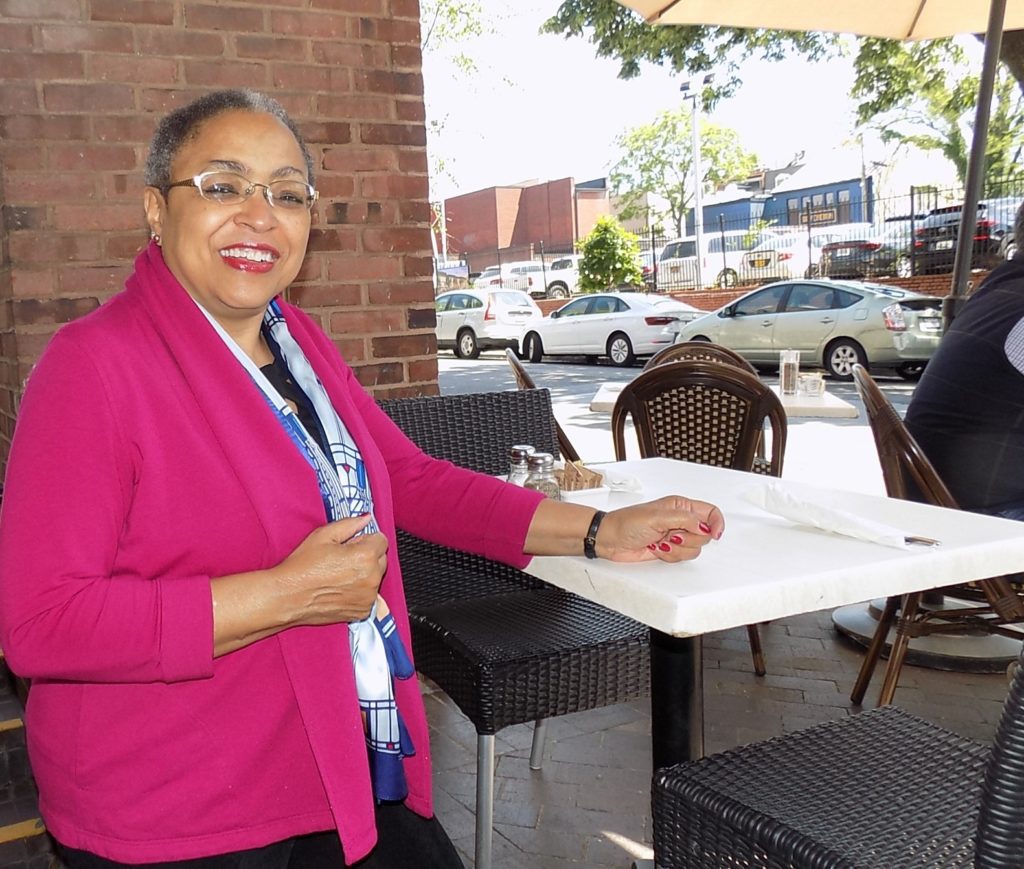Arts and Humanities Director Defends Mayor’s Plan
By • May 20, 2019 0 1133

The conflict over the status of the DC Commission on the Arts and Humanities has been slowly simmering over the past few months. In the weeks ahead, decisions will be made. The second vote by the District Council on the mayor’s budget — which includes changes for DCCAH — will be on May 28.
“It’s a cleanup of the language from 50 years ago,” Terrie Rouse-Rosario, executive director of the commission, told The Georgetowner in an exclusive interview. Referring to Mayor Muriel Bowser’s proposals for the commission, she explained: “It’s codifying what’s there. It’s how we work.We’re a department. We’ve never been a separate entity.”
The DCCAH was founded in 1968 as part of an initiative by the National Endowment of the Arts.
One of the sticking points with some arts groups and artists is that the commission would also offer loans, not just grants. To this concern, Rouse-Rosario said that the new arrangement would put “another tool in the toolbox.”
She wrote a May 13 letter to District Council Chair Phil Mendelson on the Council’s budget proposal concerning the DCCAH, titled “Commission on the Arts and Humanities Independence and Funding Restructuring.”
“The whole of this legislation, if enacted, will put the future of the District’s cultural and creative sectors in serious jeopardy,” Rouse-Rosario argued.
“The nature of CAH as an agency of the District of Columbia government and the role of the appointed Commissioners is a radical shift from the governance structure that has been operationalized with the agency for decades. By establishing the agency as ‘a independent agency that is not part of the Office of the Mayor,’ the Council would eliminate the structure that enables the agency to successfully administer our programs and issue millions of grants each year. In order to continue successful administration, the agency must remain in the Executive Branch will full access to and support of other District agencies.”
At DCCAH since December of 2018, Rouse-Rosario has longtime experience in the nonprofit and arts world. She served as the chief operating officer of the National Center for Civil and Human Rights in Atlanta, which opened in 2014. From 2007 to 2011, she was the founding CEO of the Capitol Visitor Center at the U.S. Capitol. She has also worked in New York, Philadelphia, Maine and Saudi Arabia.
Bowser’s proposed plan for CAH would keep arts grants and replace millions of dollars of grants with loans. It would restructure the commission into a new Department of Arts and Humanities, giving the mayor direct authority over the arts commission and expanding its mission to include cosmetology and culinary arts. Opponents of the plan worry about loss of dedicated funding for certain groups.
Specifically, “the mayor’s 2020 budget eliminates some $8.3 million in commission grants,” according to the Washington City Paper. It converts the grant programs to Cultural Plan loans that mainly will eliminate D.C. Council earmarks. “The budget also introduces $8.4 million in funding for the Cultural Plan, including $5 million for a Cultural Facilities Fund and $2 million for an Innovation and Entrepreneurship Loan Fund. While details about how these loan programs will function are virtually nonexistent,” the City Paper continued. The loans don’t appear to come with an articulated repayment program.
According to Marie Whittaker, interim chief of staff for the deputy mayor of planning and economic development, the same grants that individual artists applied for this year will be available next year. The main loan fund under the Cultural Plan, the new Cultural Facilities Fund, would be “aimed at organizations who are looking for loan funding, who maybe can’t find it through the traditional route, from a bank or other places where they can access capital,” she said.
The May 2 budget report by the Council’s Committee of the Whole, helmed by Mendelson, stated: “The Committee believes the Commission should be an independent body that can make decisions on grants and policies without the undue influence of the Executive or the Council.” It added the following about the mayor’s proposals, “This would be an ill-advised move as it will diminish community engagement.”
Mendelson’s office told the Afro newspaper last week: “The Council is making more dollars available for arts organizations and adopting a funding formula that arts groups requested and endorsed, in order to ensure a more uniform and equitable process for funding.”

